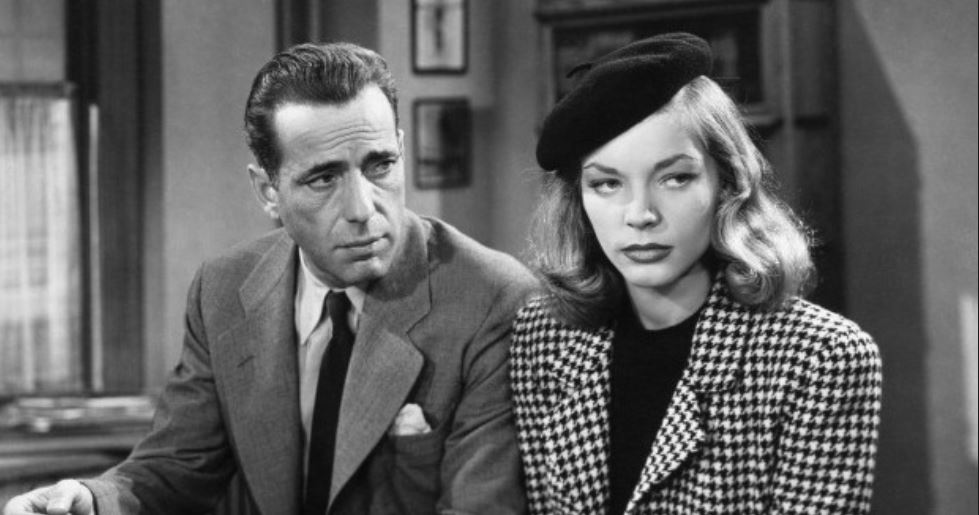As summer hits its halfway point, many of you may be eagerly awaiting your upcoming beach vacations. And with the beach comes “beach reading,” from Tom Clancy to Danielle Steele and everything in between.
To many educated people, the phrase “beach reading” represents the quickest way to dismiss a book without attacking it outright. Just because a given genre of literature is conventional or escapist, however, does not mean it is without literary value or spiritual merit.
Detective fiction, in particular, has been consistently interpreted as an inherently religious genre by such Christian literary luminaries as W.H. Auden and Dorothy L. Sayers, who herself wrote some excellent whodunits.
In my opinion, the Christian wisdom of detective fiction can be divided into three categories and should be read for these reasons:
1. It teaches the gravity of sin
Murder tears a hole in the cosmos. When one man slays another and the guilty party walks free, the universe is out of balance until he is brought to justice. Although detective fiction entered its golden age in the 1920s, this idea stretches back for millennia.
In Deuteronomy 21, Moses delivers God’s law for atonement in cases in which a corpse is discovered in the countryside. The divine commands for dealing with unsolved murder are highly ritualistic. First, the elders of the surrounding towns must determine which town is closest to the body. Then, the elders of that town must sacrifice a heifer while declaring to God, “Our hands did not shed this blood, nor did our eyes see it shed.” The express purpose of this ritual is to “purge the guilt of innocent blood” from the midst of the people. A holy God cannot, by His very nature, tolerate sin, and until that sin is punished (whether directly or through the substitutionary atonement suggested by the Deuteronomy passage), human society, and indeed all creation, is thrown into chaos and collective guilt.
In his long essay “The Guilty Vicarage,” W.H. Auden, a self-confessed detective story “addict,” went so far as to argue that a good whodunit presents each murder as a microcosm of the Fall and should therefore be set in “an innocent society in a state of grace” because “the more Eden-like” the setting is, “the greater the contradiction of the murder.”
Auden’s analysis is persuasive, but his definition of proper detective fiction is much too narrow. The Los Angeles inhabited by Raymond Chandler’s detective Philip Marlowe, for example, is far from Edenic. With a dramatis personae consisting of blackmailers, prostitutes, hired thugs, and crooked cops, it’s about as fallen a world as can be imagined.
Auden’s insistence on an innocent society forces the detective story in a more purely allegorical direction. In the real world, there is no group of people in which one is guilty and the rest untainted. Even the detective cannot remain immaculate. Marlowe, for example. must constantly fight to avoid being subsumed by corruption. In Farewell, My Lovely, Marlowe’s struggle takes the form of a choice between two women—one a cynical, adulterous trophy wife who drinks too much, the other a hopeful newspaper reporter committed to truth and justice. Murder, as the worst (and first) of all sins against neighbor, should shock us into awareness (and repudiation) of our own sins even as it reassures us of the reality of justice.
2. It teaches the inexorability of justice
In her introduction to a 1934 collection of Great Short Stories of Detection, Mystery and Horror, Dorothy Sayers wrote that “Detective Fiction is… a good influence in a degenerate world” because of its universal insistence that “your Sin Will Find You Out.”[1]
Some detective stories, like David Fincher’s film Zodiac, end without the killer brought to justice, but in such cases, we are being given a portrait of neither heaven nor earth, but of hell. Anyone who has trouble believing that a good God could send anyone to hell but is horrified by unpunished killers would do well to ask himself if he would really like to live in a world utterly devoid of justice. Sin demands blood, and humanity demands truth.
I have already established that murder throws the cosmos into chaos. In Auden’s ideal detective story, this chaos is a temporary aberration. In Chandler’s novels, it is a reminder that although all the lines we see are crooked, it is still worth believing in such a thing a straightness. For some postmodern whodunit writers, however, chaos is reality itself. Justice is a mere illusion with no God to enforce it. Umberto Eco’s The Name of the Rose for example, begins with Eco’s Sherlock-inspired monk detective confident that God has created an orderly world and that he can solve any murder by interpreting the signs present in Creation. By the novel’s end, he has come to doubt God’s very existence.
Against such attacks on the objective character of truth and justice stands G.K. Chesterton’s Father Brown, a Catholic priest whose knowledge of the sinful soul, gained during years in the confessional, helps him understand criminals, catch them, and bring them to repentance. While the postmodernists lose sight of justice in the quagmire of humanity, Father Brown insists that “[r]eason and justice grip the remotest and loneliest star.” The God who stretched out the heavens also gave the commandment “Thou shalt not murder.” Human detectives can be confounded, but there is no escape from His justice.
3. It shows how to restore harmony
In Auden’s estimation, the disruption of the paradise by murder creates a state of affairs in which, for the first time, “the law becomes a reality and… all must live in its shadow, till the fallen one is identified. With his arrest, innocence is restored, and the law retires forever.” The poet has no less an authority than St. Paul to back him up: “Why then the law? It was added because of transgressions… [T]he law was our guardian until Christ came” (Galatians 3:19, 24 ESV).
The enforcement of law restrains us and guides us, but also points us to the ultimate justice of the Second Coming, when the wheat will be separated from the chaff and the blessed souls in heaven will have no more need of laws or detectives. The criminals will have been punished, harmony restored, and the last great mystery solved.
Even if finding the killer does not actually restore society to Auden’s perfect “state of grace,” it at least reminds us that there is such a thing as justice. Our fallen world will never see a complete adherence to God’s Universal Law, but a solved crime gives us, if not a return to Eden, at least a foretaste of heaven and an antidote to nihilism.
Indeed, the first season of True Detective ends on precisely this note. The two detectives have spent seventeen years investigating murders that, though solved, prove ultimately senseless. Both have committed grievous sins along the way and have been sorely tempted to embrace chaos as the natural state of reality. They look at the night sky. Marty (Woody Harrelson) observes that the stars are mere pinpricks compared to the vast, black void. Rust (Matthew McConaughey) disagrees: “[O]nce there was only dark. You ask me, the light’s winning.”
Justice is real, and even in a world as corrupt as ours, it sometimes prevails. We may be in Oscar Wilde’s gutter, but like Rust and Father Brown, we can always look to the divine justice that moves the sun and other stars.
[1] Thanks to Tyler Brown and Dr. Janice Brown for helping me locate this Dorothy Sayers quote.
—
Image Credit: Warner Bros.
1 comment















1 Comment
Ray Van Neste
July 23, 2022, 3:48 amGreat post! J I Packer also wrote an editorial years ago on his love of detective stories and why such "light reading" is good
REPLY